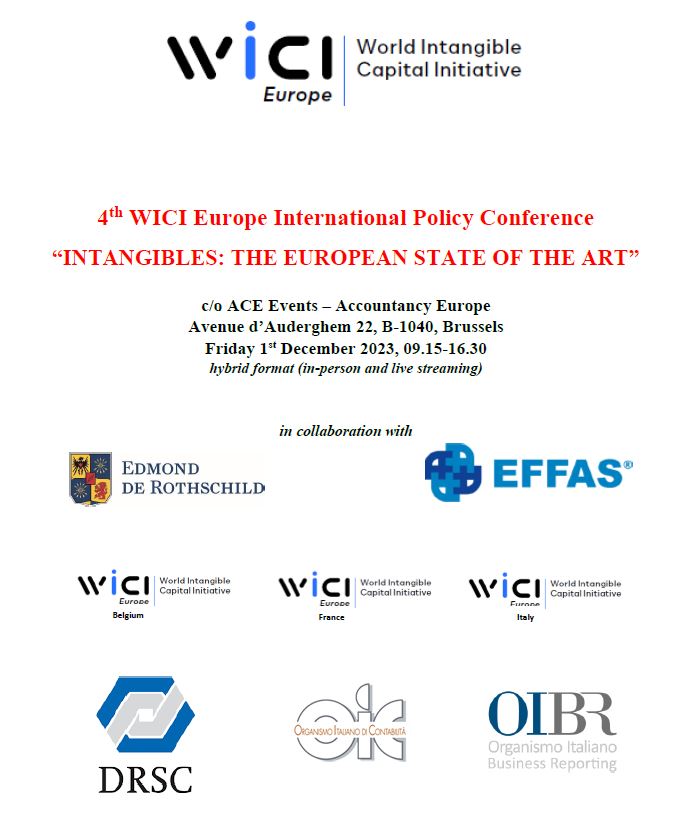EARLY ANNOUNCEMENT
The New Club of Paris together with the World Capital Institute and the University of Catania announce the International Conference
Beyond Sustainability:
Knowledge Capital and Alternative Economics for the Anthropocene
Call for Abstracts
Background
The concepts of sustainability and regeneration have opened up to alternative economic frameworks including the circular and bioeconomic approach, social ecological economics and degrowth. The Bioeconomy refers to a more sophisticated and sustainable model of the economy based on the efficient and regenerative use of biological resources. Social ecological economics is committed to dealing with environmental depletion, finding climate just alternatives to unsustainable production and consumption, while intellectual capital can provide the qualitative grounds for degrowth.
The concept of sustainability in its advanced dimensions of knowledge-based alternative economics has thus gradually evolved compared with the original idea of bioeconomy and circular economy.
Focus
The realization of these new approaches has meant that an economic environment has developed where new skills and new capabilities are required and consequently deemed necessary for the activation of entrepreneurial dynamics. Hence, the need arises to qualitatively define the scope of these new skills as well as the methodological requirements for their education.
The theme of the delimitation and teaching of new approaches in economics, is absolutely essential for the tangible and intangible creation of economic models based on these innovative principles. A gap is often witnessed between scientific and academic conceptual constructions and concrete managerial and entrepreneurial activity. As is evident, the reduction of this gap is only possible if adequate training mechanisms together with innovative and targeted teaching capable of integrating the new possibilities offered by innovative frameworks are activated alongside an adequate scientific and empirical approach.
Following this approach, a different economic model would become a safeguard for democracy and for the pursuit of a specific purpose: drawing a new contract between the human and more-than-human worlds. In this sense, safeguarding natural capital and redefining the framework of interactions at a social and economic level would take on the value of protecting democratic rules and regulating social relations, allowing new levels of intercultural and global governance.
Contributions that can coherently address topics such as those specified below are invited:
- Alternative models of economy and economics beyond sustainability
- Circular bioeconomy and regenerative approaches
- Climate justice and ecological economics
- Social knowledge capital for degrowth
- New impact measurements for alternative economics
- Balancing environmental and socioeconomic goals
- Caring for nature as a precondition for development
- Progressive taxation: from taxing labor to taxing consumption and concentration
- Transformation towards a common good economy
- Teaching new paradigms: topics, methodology and dynamic integration of technology
- Finding a way through alternatives to sustainability
- Digital transformation, AI and technological advancements for efficiency in circular and bio-regenerative economies
- The role of governmental institutions and public administrations in changing paradigms
Important dates
Contributions are warmly welcomed according to the following milestones and due dates:
- Deadline for abstract submission 30th of September 2024 (structured abstract required: background; objective; methodology; findings; implications. Max. 1000 words) to email kcwsncp.conferencerg@unict.it
- Abstract acceptance notification 14th of October 2024
Publication opportunity
Publication opportunities, that will be announced shortly, are substantially based on a special issue of a relevant scientific journal and a book from a well-known international editor.
Conference registration and fee
| Early Registration | 170 Eur | Before 21 October 2024 |
| Registration | 200 Eur | Until 10 November 2024 |
| Late Registration | 250 Eur | After 11 November 2024 |
More information about the conference and the call for Abstracts can be found here: https://www.jointconferenceragusa.unict.it/
NCP General Assembly
The NCP General Assembly will take place on November 22nd, 2:00 – 4:00 pm CET, University of Catania, Ragusa, Italy, and online. Please book the date in advance. The remote access link will be shared closer to the event. More Information about the General Assembly and the conference will be available soon.






